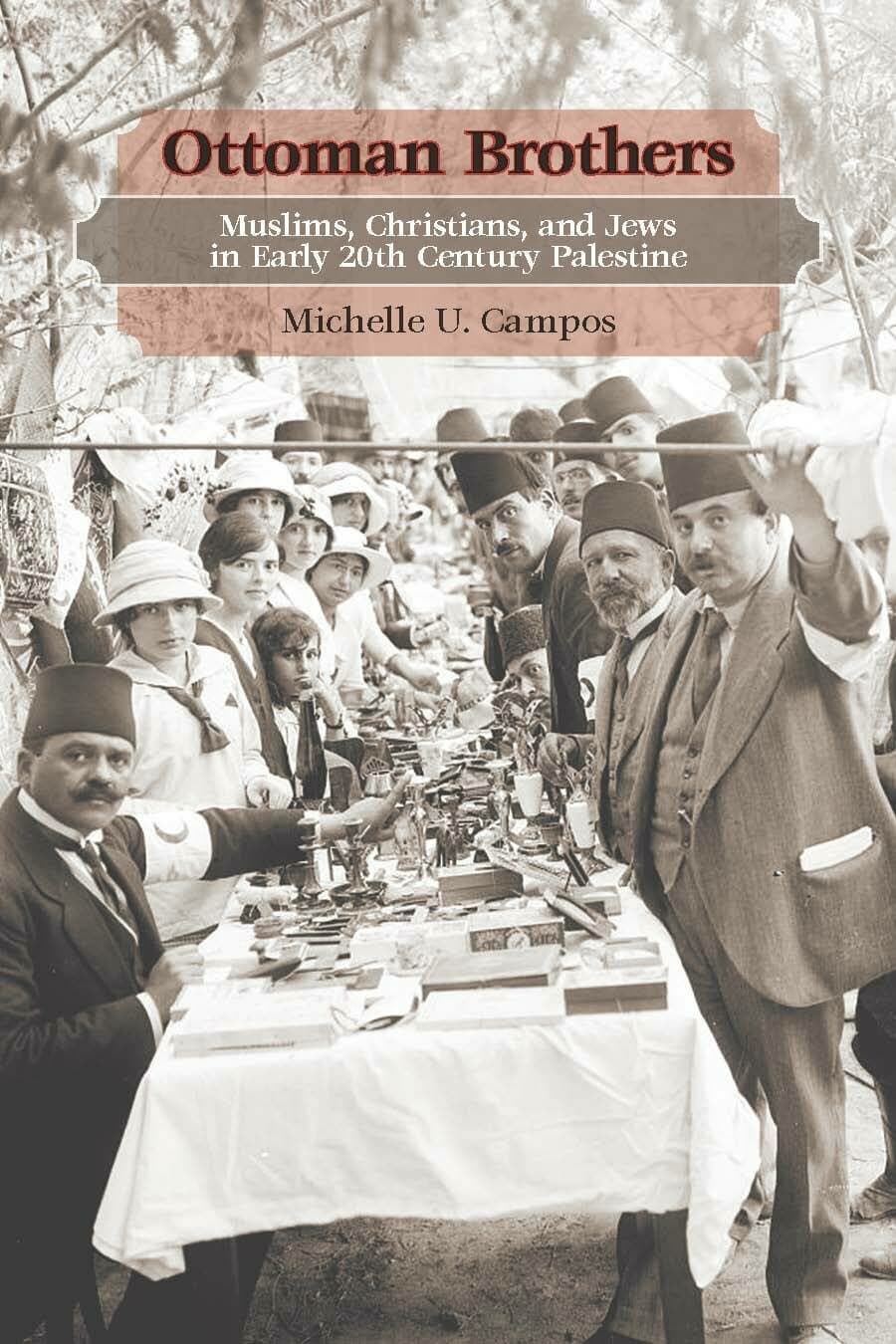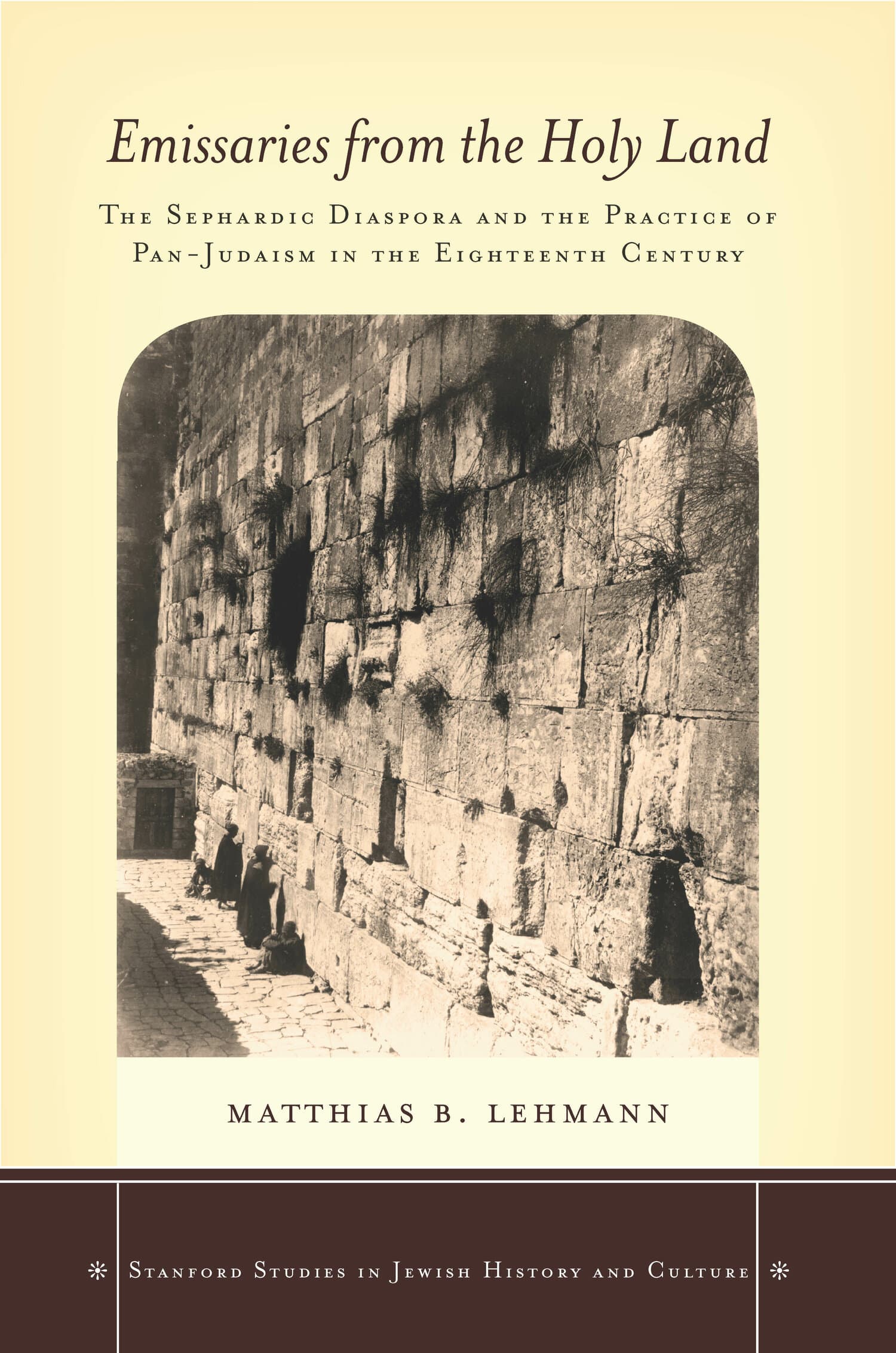The Jews of Ottoman Izmir
Award Winner
2020: National Jewish Book Awards
Finalist of the 2020 National Jewish Book Awards, Sephardic Culture category, sponsored by the Jewish Book Council.

By the turn of the twentieth century, the eastern Mediterranean port city of Izmir had been home to a vibrant and substantial Sephardi Jewish community for over four hundred years, and had emerged as a major center of Jewish life. The Jews of Ottoman Izmir tells the story of this long overlooked Jewish community, drawing on previously untapped Ladino archival material.
Across Europe, Jews were often confronted with the notion that their religious and cultural distinctiveness was somehow incompatible with the modern age. Yet the view from Ottoman Izmir invites a different approach: what happens when Jewish difference is totally unremarkable? Dina Danon argues that while Jewish religious and cultural distinctiveness might have remained unquestioned in this late Ottoman port city, other elements of Jewish identity emerged as profound sites of tension, most notably those of poverty and social class. Through the voices of both beggars on the street and mercantile elites, shoe-shiners and newspaper editors, rabbis and housewives, this book argues that it was new attitudes to poverty and class, not Judaism, that most significantly framed this Sephardi community's encounter with the modern age.
"In this skillfully researched and beautifully written book, Dina Danon gives voice to Jews from various social and economic backgrounds. In the best tradition of social history, she masterfully relates their experiences in an often overlooked corner of the Ottoman Sephardi world to the broader forces that reshaped their city, region, and the nineteenth-century world."—Reşat Kasaba, University of Washington
"The hard work Danon invested in the book is evident in its convincing narrative, its clear and accessible style, and its generous scientific apparatus. It is safe to assume that henceforth this monograph will be regarded as the central work on the Jews of Izmir in the last Ottoman century."—Tamir Karkason, Middle East Journal
"This work provides a major contribution to the study of a Jewish community in general, and an Ottoman one in particular."—Rachel Simon, Association of Jewish Libraries Reviews
"This eloquently written and expertly researched book is the outcome of Dina Danon's work over the past decade. It reflects Danon's original approach and scholarship. The book deals with the Jewish community of Izmir during the late Ottoman period. This is an important addition to our knowledge of this overlooked community at a time of tremendous changes about which we still know very little."—Eyal Ginio, The American Historical Review
"Danon has succeeded in describing and analyzing how social and economic conditions led to communal struggles and the desire for change. ... [H]er book is a singular contribution and an important landmark for future research on other Sephardic communities in modern times."—Jacob Barnai, Association for Jewish Studies Review
"Dina Danon's new book is an excellent work of social history that significantly enhances our understanding of Ottoman Jewish history in the late imperial period. It does so in a multi-layered way, such that it ultimately consists of more than its title suggests—that is, a history of the Jews of Izmir (though it is that, as well)...[T]hanks to Danon's deft handling of the tools of social history, and her attentiveness to an array of studies of the Ottoman empire in this period, what emerges is a portrait of social stratification in late Ottoman Izmir writ large...Danon's scholarship not only fruitfully builds on work that has come before, but... it will in turn be a critical stepping stone for the work of others."—Katherine E. Fleming, Slavic Review
"This work should be treasured. Not just because it is a well-wrought and at times elegant addition to the Judaic Studies, but because it enlightens those of us who are fascinated with Jewish life specifically, and late Ottoman history more generally, and fills a critical space in our understanding of the revolutionary changes occurring during this period."—Jeffrey Kahrs, Tikkun
"Unlike recent literature on Ottoman non-Muslims that focuses on the relationship between Istanbul's Jewish community and the city's Muslim political elites, Danon's work looks inward to explore the dynamics within Izmir's vibrant Jewish society. What emerges is a comprehensive social history of a community that to a great extent maintained a character unique from those of other Sephardic Ladino-speaking communities, such as in Istanbul and Salonica."—Louis Fishman, H-Nationalism
"The Jews of Ottoman Izmir fills an important gap in the scholarship on modern Ottoman Jewish and Sephardic history by offering a locally focused account of social and political change in one of the most important, yet also understudied, Ladino-speaking communities in the Ottoman Empire. But Danon does more than fill a gap, valuable as it is to have this first monograph on modern Jewish Izmir in English. She also shifts the narrative about Ottoman Jewish history in a new direction by emphasizing social class as a central framework for her analysis, and by looking, in particular, at the city's Jewish working class, at poverty, and at class conflict. By raising the question of what Jewish modernity looked like in a context in which Jewish distinctiveness itself was 'wholly unremarkable,' she offers an important impulse to move beyond the conventional paradigms of emancipation, assimilation, and shifting patterns of 'identity.'"—Matthias Lehmann, H-Judaic
"The Jews of Ottoman Izmir contributes to new perspectives on the class-based process of becoming modern in an empire and provides a model for writing modern imperial histories, ones that focus on voices from nonelites, from nondominant communities, from regions outside the center, and in materials composed in nonofficial state languages."—Annie Greene, Critical Inquiry




